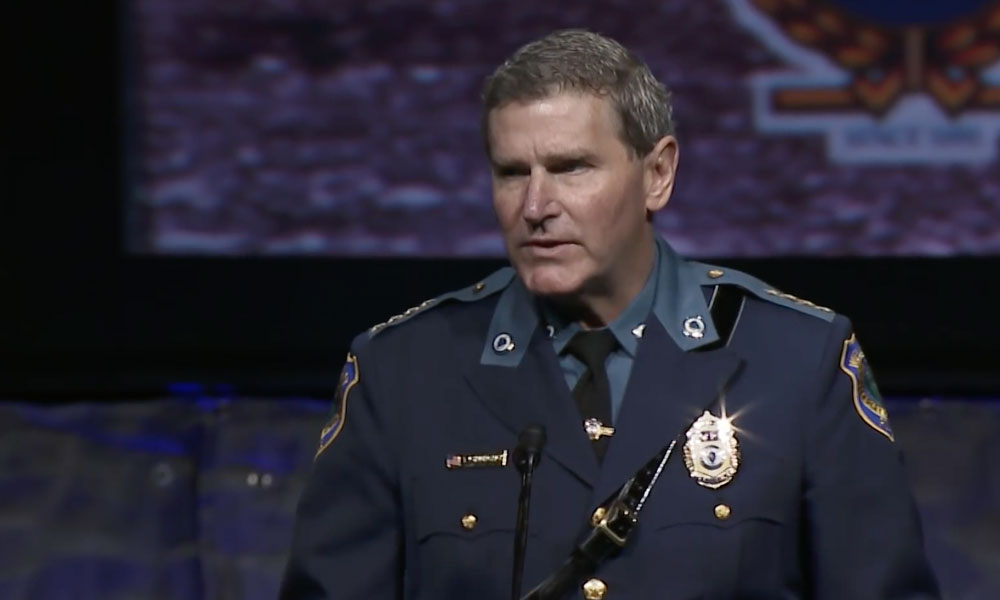
Head of Police Chiefs Group Apologizes for Historic Mistreatment of Minorities
In light of recent police shootings, the president of the International Association of Chiefs of Police gave an unprecedented conciliatory address on the mistreatment of minorities by law enforcement throughout history. He also encouraged communities and officers to work together moving forward.
This week, before a crowd of 16,000 law enforcement officials, who were gathered in San Diego for the 2016 International Association of Chiefs Police Annual Conference, IACP President Terrence M. Cunningham gave a statement both acknowledging policing’s mistreatment of minorities—and apologizing for it.
“The history of the law enforcement profession is replete with examples of bravery, self-sacrifice, and service to the community,” Cunningham, who is also the police chief in Wellesley, Massachusetts, said on Monday. “At its core, policing is a noble profession made up of women and men who have sworn to place themselves between the innocent and those who seek to do them harm. … At the same time, it is also clear that the history of policing has also had darker periods.”
Cunningham went on to say that in the past, police “have been the face of oppression for far too many of our fellow citizens.” The result is an ongoing “multigenerational—almost inherited—mistrust between many communities of color and their law enforcement agencies.”
Monday’s remarks come at a time of highly strained relationships between local communities and their police counterparts. Even though FBI officials acknowledge an “unacceptable” dearth of reliable data on people killed by police, there’s been a steady stream of police shootings in news headlines and in the public consciousness. Recent victims like Terence Crutcher, Alton Sterling, and Keith Lamont Scott have become rallying cries for police reform, and in some cases, their deaths have incited violent protests.
By apologizing, IACP—which represents 23,000-plus members in 98 countries—goes a step further than police organizations have done in the past. And that’s a step that some in law enforcement are saying goes too far.
“Such appeasement of the violent anti-police movement is just one more nail in the coffin of American law enforcement,” said William Johnson, the executive director of the National Association of Police Organizations, to The New York Times. “The people who support American police officers aren’t looking for an apology. And for the people who hate the police, it won’t make any difference.”
Others expressed appreciation, while also noting that there are additional steps to take.
On Monday, the NAACP Legal Fund tweeted, “Good 1st step. Some next steps: require anti-bias training; discipline officers who engage in bias policing.”
“For our part, the first step in this process is for the law enforcement profession and the IACP to acknowledge and apologize for the actions of the past and the role that our profession has played in society’s historical mistreatment of communities of color,” Cunningham said.
He also asked that communities would “acknowledge that today’s officers are not to blame for the injustices of the past,” rather that everyone has an obligation to work together in restoring trust and coming up with solutions that ensure that communities are protected.
“It is my hope that, by working together, we can break this historic cycle of mistrust and build a better and safer future for us all,” Cunningham said.
IACP President Terrence M. Cunningham. (YouTube screenshot)






Comments